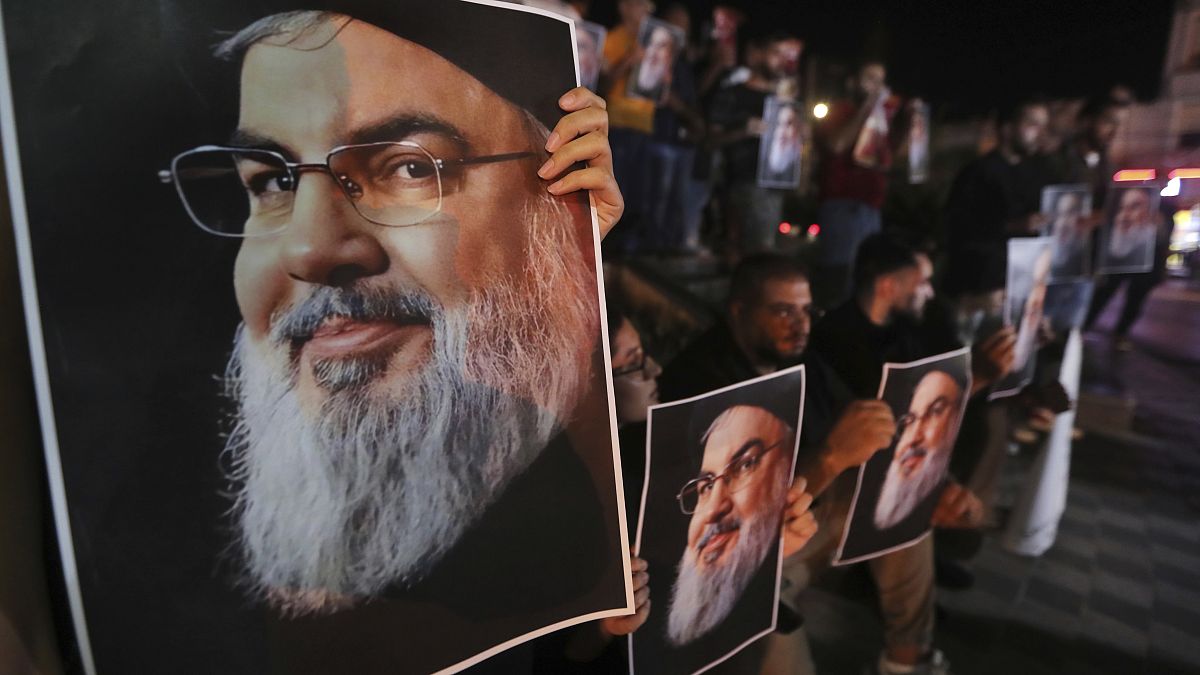The recent killing of the leader of Hezbollah, Hassan Nasrallah, in an Israeli airstrike in Beirut has led to a significant escalation in tensions in the Middle East. Nasrallah had been the head of Hezbollah for more than three decades, making him the most powerful target to be killed by Israel during the intensified fighting with the Lebanese group. The airstrike, which took place while the Hezbollah leadership were meeting at their headquarters in Dahiyeh, resulted in the deaths of six people and injuries to 91 others, as well as the leveling of six apartment buildings. The incident has sparked reactions from various countries around the world.
Germany’s foreign minister, Annalena Baerbock, expressed concern over the dangerous situation in Lebanon and warned of a potential spiral of violence in the region. France’s Ministry for Europe and Foreign Affairs is in contact with Lebanese authorities to prevent further destabilization. Meanwhile, former MEP Jean-Luc Melenchon warned that Nasrallah’s assassination could lead to the invasion of Lebanon and a general war. Italy’s foreign minister, Antonio Tajani, urged all Italian citizens to leave Lebanon immediately, while also highlighting Israel’s assurances for the safety of Italian soldiers stationed in the country as part of a UN peacekeeping force.
Russia strongly condemned the killing of Nasrallah, calling on Israel to cease all hostilities in Lebanon to prevent further dramatic consequences in the region. Turkish President Recep Tayyip Erdoğan labeled Israel’s actions in Lebanon as part of a policy of genocide, occupation, and invasion, and called for a more determined stance from the Muslim world. UN Secretary-General Antonio Guterres expressed grave concern over the escalating violence in Lebanon, emphasizing the need for all parties to step back to prevent an all-out war. US President Joe Biden viewed Nasrallah’s killing as a measure of justice for his victims and reaffirmed American support for Israel’s right to defend itself against terrorist groups.
Israeli Prime Minister Benjamin Netanyahu declared Nasrallah’s killing as a historic turning point, claiming that Israel had settled the score with the Hezbollah leader responsible for numerous Israeli and international casualties. Iran’s President Masoud Pezeshkian stated that Nasrallah’s death would only strengthen the resistance, with Supreme Leader Ayatollah Ali Khamenei calling for Muslims to rise against Israel and vowing to avenge Nasrallah’s death. Hamas condemned the killing as a cowardly terrorist act and expressed solidarity with Hezbollah and the Islamic resistance in Lebanon in the face of what they viewed as a Zionist aggression and massacre.
The killing of Hassan Nasrallah in an Israeli airstrike has set off global reactions and raised fears of further escalation in the already volatile Middle East region. The incident has led to calls for de-escalation and restraint from various countries and international organizations. As tensions continue to simmer, the world watches closely to see how the situation will unfold in the aftermath of Nasrallah’s death and its potential impact on regional stability.










